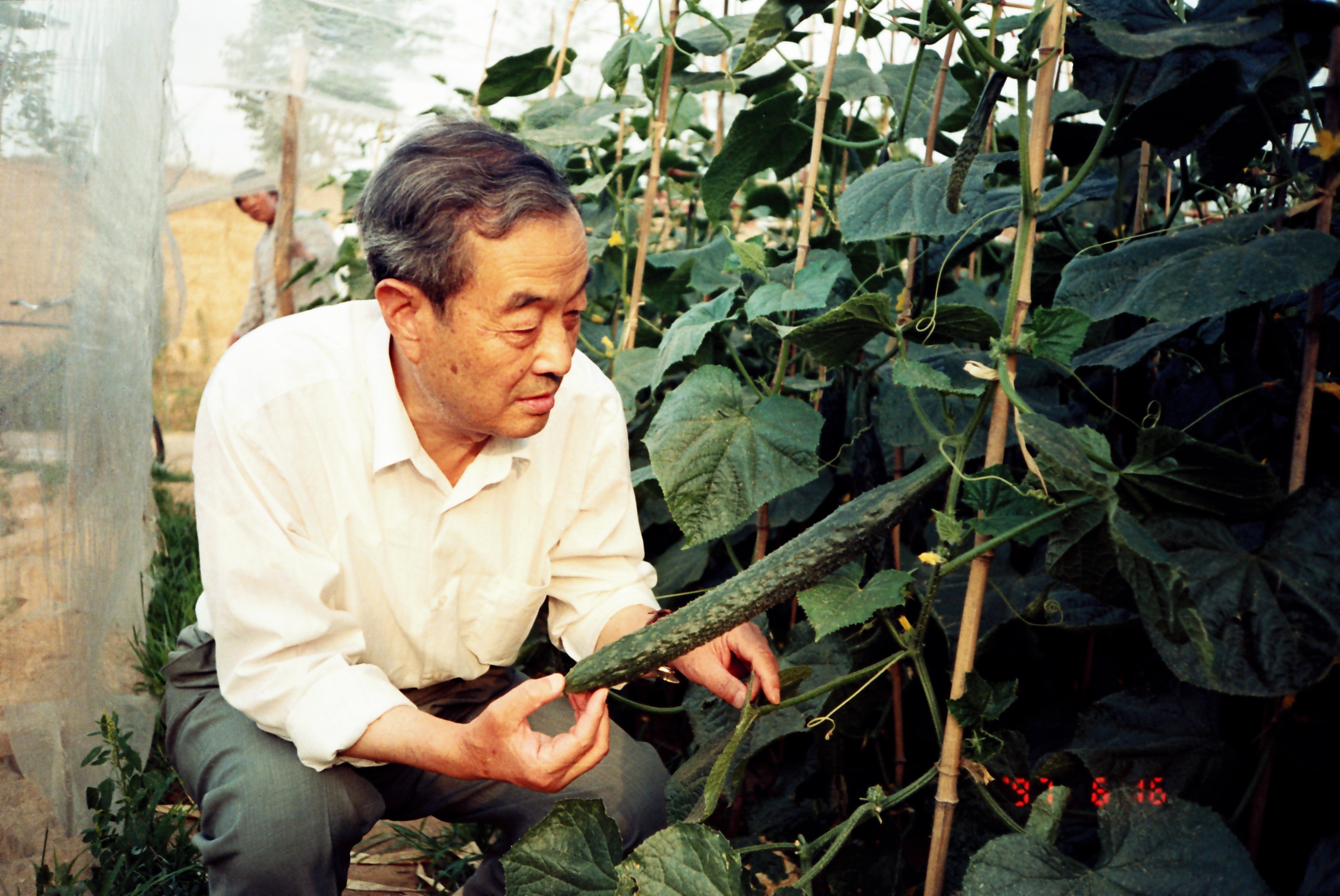- 2.8Impact Factor
- 5.5CiteScore
- 15 daysTime to First Decision
Cucumber Genetics and Breeding - a Themed Issue in Memory of Academician Feng Hou (1928 - 2020)
This special issue belongs to the section “Plant Genetics and Genomics“.
Special Issue Information
Dear Colleagues,
Academician Feng Hou (侯锋) (3 February 1928-7 November 2020), born in Pingdu, Shandong Province in 1928, was an academician of the Chinese Academy of Engineering, former vice president of Tianjin Academy of Agricultural Sciences, director of Tianjin Cucumber Research Institute, Chinese Cucumber Breeding expert, and the leader in the field of cucumber disease resistance breeding in China. He had many scientific accomplishments and successively won the National Science Conference Award, the second prize of the National Invention Award, the second prize of the National Science and Technology Progress Award, and the China Engineering Science and Technology Award.

Academician Feng Hou, who graduated from Beijing Agricultural University (now China Agricultural University) in 1954, was a famous vegetable breeding expert in China. He led in carrying out research on cucumber disease resistance breeding in China, conquering the disease resistance of cucumber downy mildew, powdery mildew, fusarium wilt, and other diseases. Additionally, he extensively introduced and utilized domestic and foreign variety resources, combined disease resistance, high yield, and early maturity, and released series of new cucumber varieties of Jinyan (津研), Jinza (津杂), and Jinchun (津春).The "fine cucumbers" have entered the dining table of thousands of households, and he was affectionately called "the king of cucumbers" by farmers. He took the lead in carrying out research on the inheritance of cucumber traits and promoted the development of vegetable breeding technology in China. The Tianjin Cucumber Research Institute he founded and its breeding, seed production, and industrialization engineering system have created a model for China's scientific research and system reform. The social benefits are significant.
To commemorate the outstanding contributions made by Prof. Hou to China cucumber breeding and industrialization, this Special Issue of Genes is soliciting original research, review or opinion articles from a variety of research fields under the theme ‘Cucumber Genetics and Breeding’. Manuscripts in the following topics are particularly encouraged: genetic resources, disease resistance, abiotic stress tolerance, development, trait discovery and genetics, genomics, and breeding. While we will focus on cucumber in this special issue, contributions from other cucurbitaceae crops are also welcome.
Prof. Dr. Shengli Du
Prof. Dr. Yiqun Weng
Prof. Dr. Xiaolan Zhang
Prof. Dr. Jinfeng Chen
Prof. Dr. Shengping Zhang
Guest Editors
Manuscript Submission Information
Manuscripts should be submitted online at www.mdpi.com by registering and logging in to this website. Once you are registered, click here to go to the submission form. Manuscripts can be submitted until the deadline. All submissions that pass pre-check are peer-reviewed. Accepted papers will be published continuously in the journal (as soon as accepted) and will be listed together on the special issue website. Research articles, review articles as well as short communications are invited. For planned papers, a title and short abstract (about 250 words) can be sent to the Editorial Office for assessment.
Submitted manuscripts should not have been published previously, nor be under consideration for publication elsewhere (except conference proceedings papers). All manuscripts are thoroughly refereed through a single-blind peer-review process. A guide for authors and other relevant information for submission of manuscripts is available on the Instructions for Authors page. Genes is an international peer-reviewed open access monthly journal published by MDPI.
Please visit the Instructions for Authors page before submitting a manuscript. The Article Processing Charge (APC) for publication in this open access journal is 2600 CHF (Swiss Francs). Submitted papers should be well formatted and use good English. Authors may use MDPI's English editing service prior to publication or during author revisions.
Keywords
- cucumber
- resistance breeding
- molecular breeding
- genetic resources
- genomics
- development
- bioinformatics
- cucurbits
Benefits of Publishing in a Special Issue
- Ease of navigation: Grouping papers by topic helps scholars navigate broad scope journals more efficiently.
- Greater discoverability: Special Issues support the reach and impact of scientific research. Articles in Special Issues are more discoverable and cited more frequently.
- Expansion of research network: Special Issues facilitate connections among authors, fostering scientific collaborations.
- External promotion: Articles in Special Issues are often promoted through the journal's social media, increasing their visibility.
- e-Book format: Special Issues with more than 10 articles can be published as dedicated e-books, ensuring wide and rapid dissemination.

